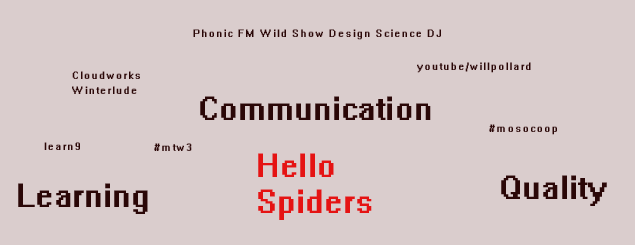Revised txt for Leuphana course - Myth and Creative Commons
MYTH AND CREATIVE COMMONS
The final task of the Commons course is to pull all the elements together. So this is as final a version as I can attempt at the moment. It will be a blog post as well as on the Leuphana site.
The trouble is that I am going off the track. The course content has been very useful as a challenge to assumptions about the commons. I now realise that any attempted commons exists in a society and there are other challenges and forces at work. The history of enclosure is very relevant and a useful warning. In reality there is a high chance that some form of enclosure will happen unless there is a strong struggle to protect a commons space.
I have tried to relate these ideas to Creative Commons as a legal option on YouTube, Flickr and other sites. Over time in most social media there has been a trend towards advertising and monetisation. The original culture is still part of the scene but may be obscured. It is hard to establish the basis for Remix on YouTube in the context of the extra adverts.
So what is taking me off track is an awareness of myth and delusion. During and after the Sidmouth Folk Week I have been noticing the Myth Circle on Facebook and the related blog. Most of my understanding comes from conversation though. I have also done several radio shows including folk music. I now realise that an FM station such as Phonic is paying to the PRS to cover all the copyright issues. so the freedom of presenters to mix things up is conditioned by this, not a model for normal life. Performers of cover versions in pubs are also covered by PRS paid by the premises. What will happen with social media? It may be that the promotion function is already understood by the record labels.
But even if the Commons as a resource for content is not actually happening it remains important as a myth. The myth allows creativity and appreciation.
Last weekend I was at a Beer and Music Festival at Seale Hayne with my colleague Jon Mahy. We work on the @wenotno show on Phonic FM. We recorded some video of the bands. Maybe there is a commons that includes the performance and the broadcast and anything the audience can do with the mix. We had mixed responses whwn we asked people about this. Some video has been loaded to Youtube but not with a Creative Commons licence. We do use Creative Commons when it is just our talk. Recently there is more streaming online that is also described as radio. How will this influence attitudes to FM and broadcast? Probably a mix of assumed commons by the audience and sophistocated efforts by marketing from the labels.
We need to keep talking to the performers. The psychology is some sort of group process. Not sure how this works but myth could be one way to describe it.
